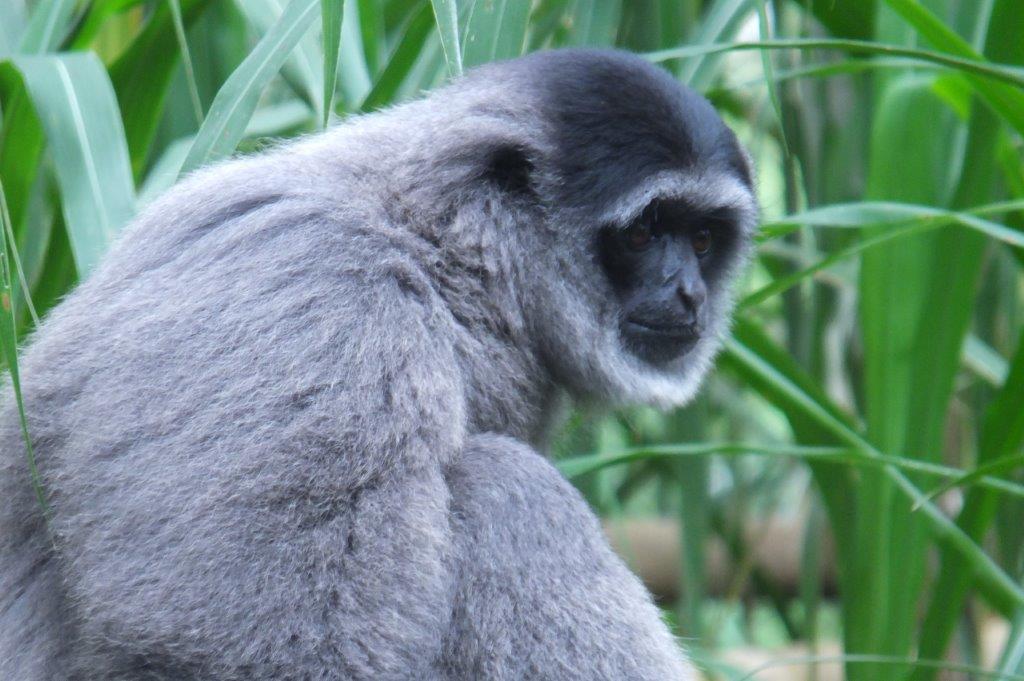 Endangered primates stand a chance of survival thanks to ground breaking conservation charity.
Endangered primates stand a chance of survival thanks to ground breaking conservation charity.
The Aspinall Foundation, a world leading conservation charity based in Kent, is celebrating after their trail blazing research into a strain of the Hepatitis B virus commonly found in captive born Javan gibbons pays off.
The findings will enable endangered gibbons, bred at the Foundation’s Kent based wild animal parks, Howletts and Port Lympne and those rescued from a life of misery in the illegal pet trade by the charity’s in situ team, to finally experience a life of freedom in the wild.
Damian Aspinall, Chairman of The Aspinall Foundation said ‘This is incredibly exciting for us! We are the only conservation charity doing this vital work to save endangered Javan gibbons from extinction. Whilst our breeding sanctuaries, Howletts and Port Lympne Wild Animal Parks in the UK, are renowned for successfully raising these gibbons in captivity, we have been unable to introduce them to the wild until now. The results of our pioneering research mean that we can now give these incredible animals a safe life in the wild, where they belong.’
Based on the results of the Foundation’s research, Javan government ministers were encouraged to review their policies on reintroducing gibbons from captivity and the illegal primate trade, into forests protected by the charity, to bolster the dwindling wild population.
Jane Hopper, The Aspinall Foundation Head of Veterinary Services explained: ‘We needed to determine whether wild populations of gibbons in Java carried this strain of the Hepatitis B virus before we released any gibbons to the forests, whether these be from the wild animal parks in Kent or rescued from the illegal primate trade in Indonesia by the in-situ team.
Using faecal samples from wild Javan gibbons, carefully collected by our team and working with specialists at Public Health England, we were able to identify that the wild gibbons did indeed carry the same strain of the virus that our gibbons had. In fact, Javan gibbons seem to carry their own unique strain of the hepatitis B virus, different from strains seen in other species including humans. The Javan gibbon strain of Hep B does not seem to cause illness in the gibbons and has not been shown to cause illness in other species.’
Following the Javan government’s U turn on their policy of releasing gibbons and other primates to the wild, The Aspinall Foundation has sent six gibbons from their wild animal parks in England, to their Javan Primate Centre in preparation for a new life in the wild.
The group, consisting of four males and one female with her two year old daughter, made the journey to The Aspinall Foundation’s Javan Primate Project Centre, at the end of December last year, where, after a suitable adjustment period they will blaze their own trails, exploring the protected forests of their ancestral homelands.
Damian Aspinall, Chairman of The Aspinall Foundation added: ‘Our work in Java is crucial to the survival of the Javan gibbon. This incredible species faces extinction in the next 20 years, unless proper conservation action is taken. It is our guiding philosophy that we must, wherever possible, return animals to protected areas of their natural habitat and work with local communities and governments to ensure that we safe guard wilderness areas around the world for these reintroduction projects to continue.’


